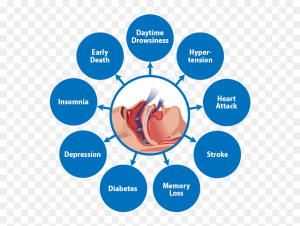Introduction
Sleep apnea is a sleep disorder characterized by pauses in breathing or shallow breaths during sleep. While it’s widely known that sleep apnea can lead to various health issues, its impact on bones and teeth might not be as commonly recognized. In this comprehensive guide, we delve into the relationship between sleep apnea and the weakening of bones and teeth, shedding light on the mechanisms involved and providing insights into preventative measures and treatments. Explore More About (Kidney Health Food And Veggies)
Understanding Sleep Apnea
What is Sleep Apnea?
Sleep apnea is a sleep disorder that affects millions of people worldwide. It is characterized by repeated interruptions in breathing during sleep, which can range from brief pauses to prolonged periods of shallow breathing.
Types of Sleep Apnea
There are three main types of sleep apnea: obstructive sleep apnea (OSA), central sleep apnea (CSA), and mixed sleep apnea (a combination of obstructive and central sleep apnea). OSA is the most common type and occurs when the muscles in the throat relax excessively, causing the airway to become blocked.
Symptoms of Sleep Apnea
Common symptoms of sleep apnea include loud snoring, gasping for air during sleep, morning headaches, excessive daytime sleepiness, and difficulty concentrating during the day.

The Link Between Sleep Apnea, Bones, and Teeth
Impact on Bone Health
Recent research suggests that sleep apnea may have a detrimental effect on bone health. One study found that individuals with severe sleep apnea were more likely to have lower bone mineral density, increasing their risk of osteoporosis and fractures.
Mechanisms Involved
The exact mechanisms underlying the relationship between sleep apnea and bone health are not fully understood. However, it is believed that chronic intermittent hypoxia (CIH), a hallmark of sleep apnea, may disrupt the normal balance of bone remodeling, leading to bone loss over time.
Effect on Dental Health
Sleep apnea can also impact dental health, particularly in the form of bruxism (teeth grinding) and temporomandibular joint (TMJ) disorders. Bruxism is often associated with sleep apnea and can lead to tooth wear, fractures, and jaw pain.
Preventative Measures and Treatment Options
Lifestyle Changes
Making lifestyle modifications can help reduce the severity of sleep apnea and mitigate its effects on bone and dental health. These changes may include maintaining a healthy weight, avoiding alcohol and sedatives before bedtime, and sleeping on your side instead of your back.
Continuous Positive Airway Pressure (CPAP) Therapy
CPAP therapy is the primary treatment for moderate to severe sleep apnea. It involves wearing a mask connected to a machine that delivers a continuous flow of air to keep the airway open during sleep.
Dental Devices
Dental devices, such as mandibular advancement devices (MADs) and tongue-retaining devices (TRDs), may be recommended for individuals with mild to moderate sleep apnea or those who cannot tolerate CPAP therapy. These devices work by repositioning the jaw or tongue to prevent airway obstruction.
Surgical Interventions
In some cases, surgical interventions may be necessary to address anatomical abnormalities contributing to sleep apnea. Common surgical procedures include uvulopalatopharyngoplasty (UPPP), tonsillectomy, and maxillomandibular advancement (MMA) surgery.

Treatment Options for Sleep Apnea
| Treatment Option | Description |
|---|---|
| Lifestyle Changes | Modify habits such as weight management and sleeping position. |
| CPAP Therapy | Continuous Positive Airway Pressure therapy using a mask and machine. |
| Dental Devices | Devices like MADs and TRDs to reposition the jaw or tongue during sleep. |
| Surgical Interventions | Surgical procedures to address anatomical abnormalities causing airway obstruction. |
Conclusion
Sleep apnea can have far-reaching consequences beyond just disrupting sleep patterns. It can also negatively impact bone and dental health, increasing the risk of osteoporosis, fractures, bruxism, and TMJ disorders. Recognizing the link between sleep apnea and these conditions is crucial for implementing preventative measures and seeking appropriate treatment. By addressing sleep apnea effectively, individuals can not only improve their quality of sleep but also safeguard their overall health and well-being.










